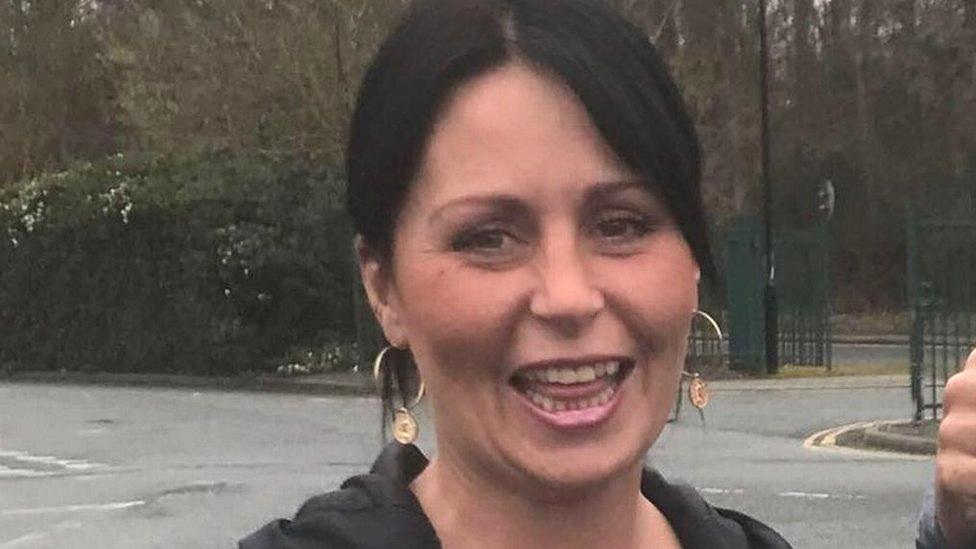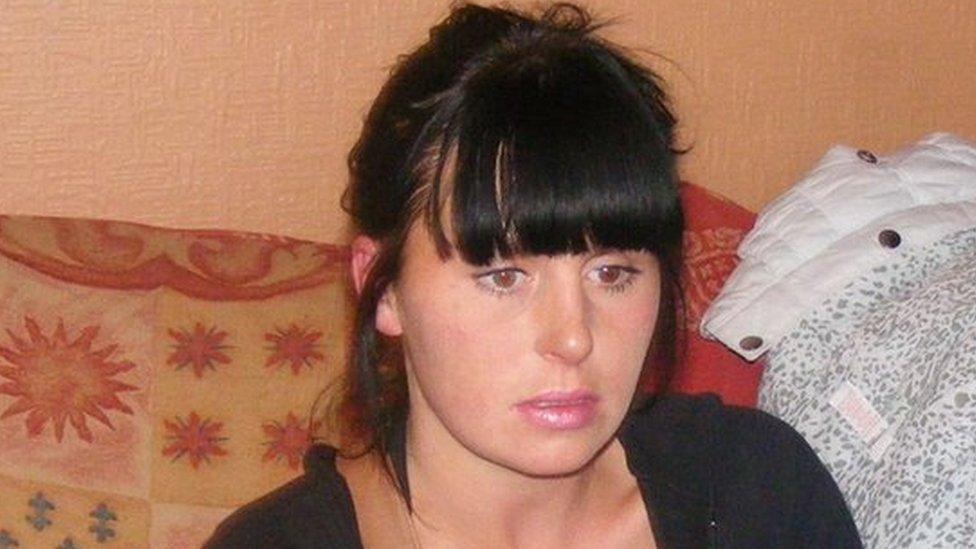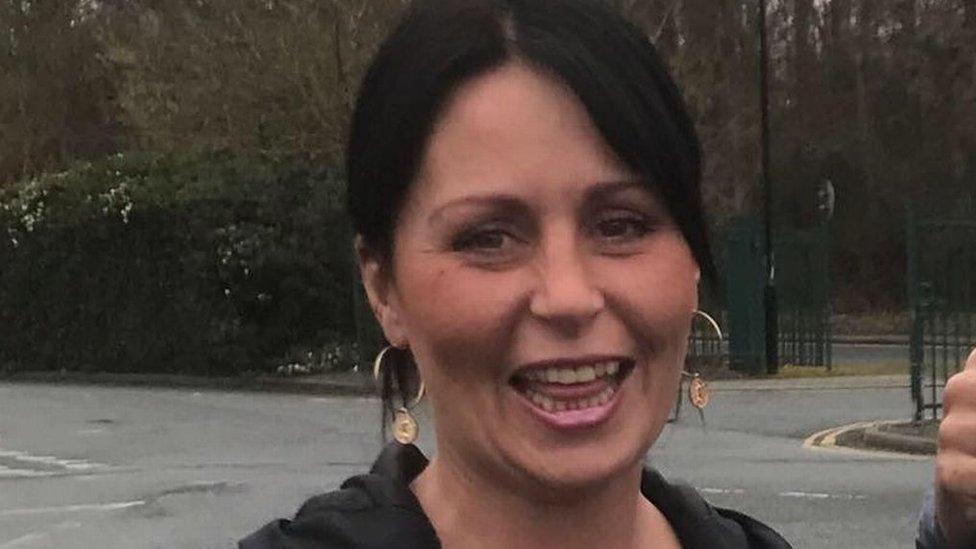Tina Robson inquest: Homeless woman 'safe' at Stockton hostel
- Published

Tina Robson was 35 when she died at Bridge House Mission in Stockton
A woman was considered "safe and happy" at a homeless hostel days before her drug overdose death, social workers have told a coroner.
Tina Robson, 35, died in her room at Bridge House Mission in Stockton from a combination of drugs in 2020.
Her mother Dr Sue Robson hopes an inquest can prevent similar deaths.
Ms Robson said she wanted to reduce her drug use and join a gym four days before she died, Teesside Coroner's Court heard.
The inquest has previously heard Ms Robson, a mother-of-one originally from Sunderland, was a long-time intravenous drug user after suffering childhood trauma and was deemed to be "very vulnerable", although she was also "bright" and "functioning" and considered to have the "capacity" to make decisions for herself.
Assistant coroner Karin Welsh heard Dr Robson contacted Stockton Borough Council social services on 14 July to raise concerns about the windows of her daughter's home in Thornaby being repeatedly smashed by vandals, with the property no longer safe for her.
Adult safeguarding team manager Calum Titley said Dr Robson "expressed concerns about [Ms Robson] being targeted within the community she was living in" as well as worries about "emotional and financial abuse" and "self-neglect".

Tina Robson grew up in Sunderland but was living in Stockton
Social workers opened a case file and Dr Robson paid for her daughter to stay in a hotel before a room was found for her at Bridge House, where Ms Robson had stayed five or six times before.
He said once she was in Bridge House, Ms Robson told social workers she "felt as safe as she had in a while and was happy" at the hostel, which has rooms for 28 people.
Ms Welsh asked Mr Titley if, "looking back at the steps taken", he had any concerns about what was done by his team.
"I did not have any concerns," he replied, although he later said he was concerned police had been called to Ms Robson's Thornaby home eight times but social workers were not informed at the time.
"If we had been informed [of the police visits] we may have had earlier contact with Tina," he said.
'Sole focus'
Lucy Weatherley, an adult safeguarding social worker, and Laura Abell, who was part of the council's early intervention team, met Ms Robson and her mother at the hostel on 22 July, four days before Ms Robson's death.
They told the inquest Ms Robson, who was known to the council for her drink and drug usage, said she wanted to stay at Bridge House.
She also told them she wanted to reduce her substance abuse and would like to join a gym to improve her health, the inquest heard.
Ms Robson then disclosed she had been a victim of childhood abuse and became upset, at which point she left the meeting.
Ms Weatherley said her "sole focus" after the meeting was to source support, such as counselling, to help Ms Robson tackle the trauma, and she believed Ms Robson was "safe" at Bridge House.
Ciara Bartlam, representing Dr Robson, asked Ms Weatherley why no efforts were made to contact Ms Robson shortly after the meeting to check she was all right after being "visibly upset" when she left.
Ms Weatherley said Ms Robson had 24/7 support in Bridge House where she was considered to be "safe" and staff there could have contacted her if they had concerns about Ms Robson's welfare.
Ms Abell said she tried to call Ms Robson several times on 24 July but the calls did not connect, with a follow up meeting scheduled for early August.
Ms Bartlam asked if it would have been "reasonable" for social workers to contact Bridge House to ask about Ms Robson, to which Ms Abell replied: "Yes."
'Skeleton staff'
The inquest has heard Ms Robson had been out on the morning of 26 July and returned at about 12:20.
Several people were seen on CCTV going in and out of her room over the afternoon but that was "normal behaviour" and would probably have been happening in all the rooms according to Revis Phillips, the centre's operations manager.
He said there was only a "skeleton staff" of a maximum of three workers on duty because of the coronavirus guidance at the time, although there was always a minimum of two.
Residents had been asked to isolate in their rooms because of the pandemic but a large number "disregarded" that, the inquest heard, and Mr Phillips said "staff for their own wellbeing quite rightly were not putting themselves in a risky position of entering rooms or checking rooms".
Kelly Stephenson was on duty and said Ms Robson "did not appear under the influence" of substances when she entered Bridge House, with the resident "checking her hair as she always did" in a mirror.
She said she watched on CCTV as Ms Robson headed towards her room, and it was not until shortly after 17:00 when she had an "inkling" something was "amiss" when she saw residents running in the corridor outside the room.
She said a resident ran downstairs to the office shouting "Tina is dead", so she grabbed a drug overdose kit and went to the room.
Ms Stephenson said it was quickly apparent Ms Robson had been dead for some time.
She told the inquest she had had no concerns for Ms Robson throughout the afternoon.
The inquest continues.

Follow BBC North East & Cumbria on Twitter, external, Facebook, external and Instagram, external. Send your story ideas to northeastandcumbria@bbc.co.uk, external.
Related topics
- Published4 July 2022
